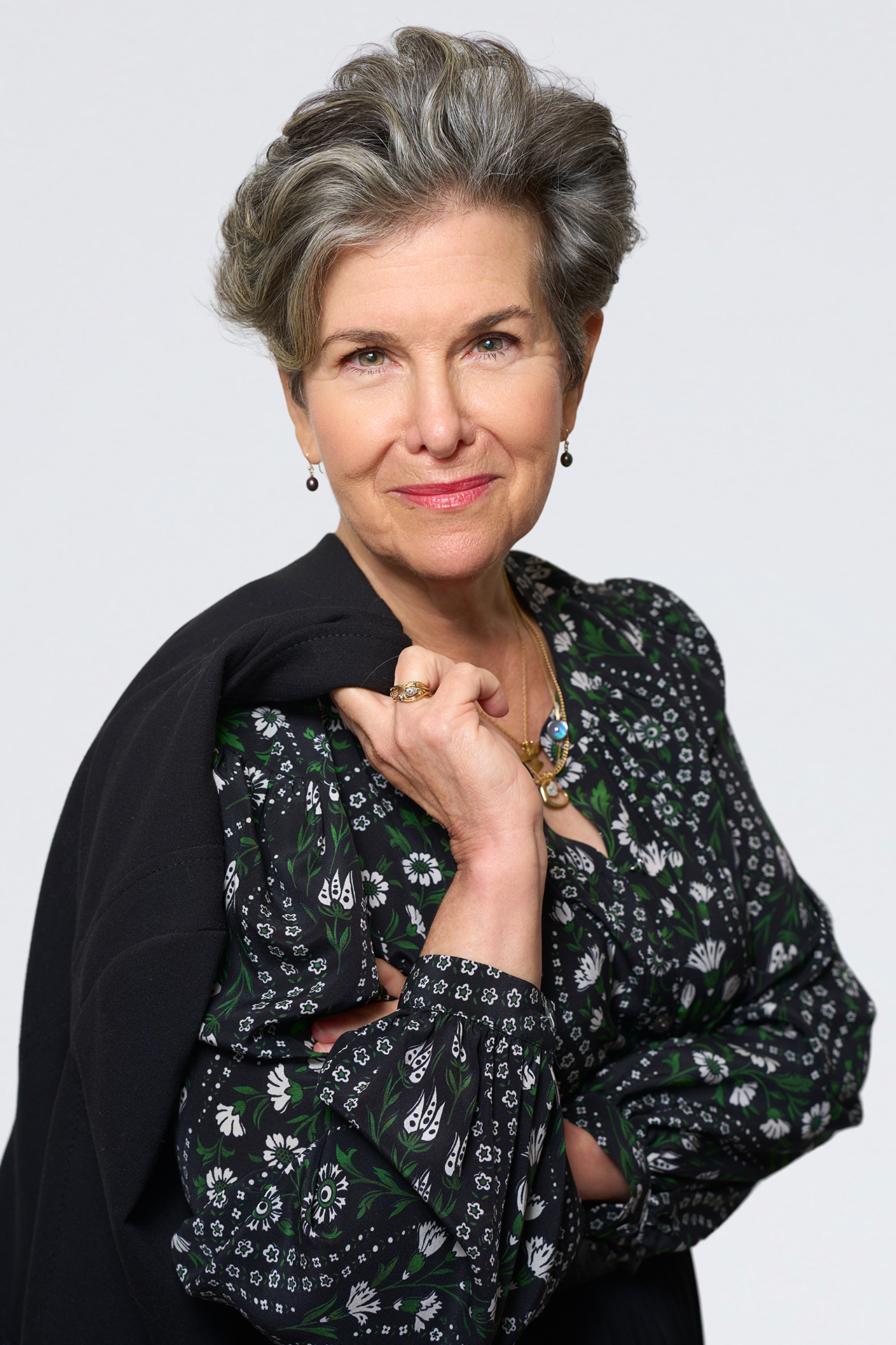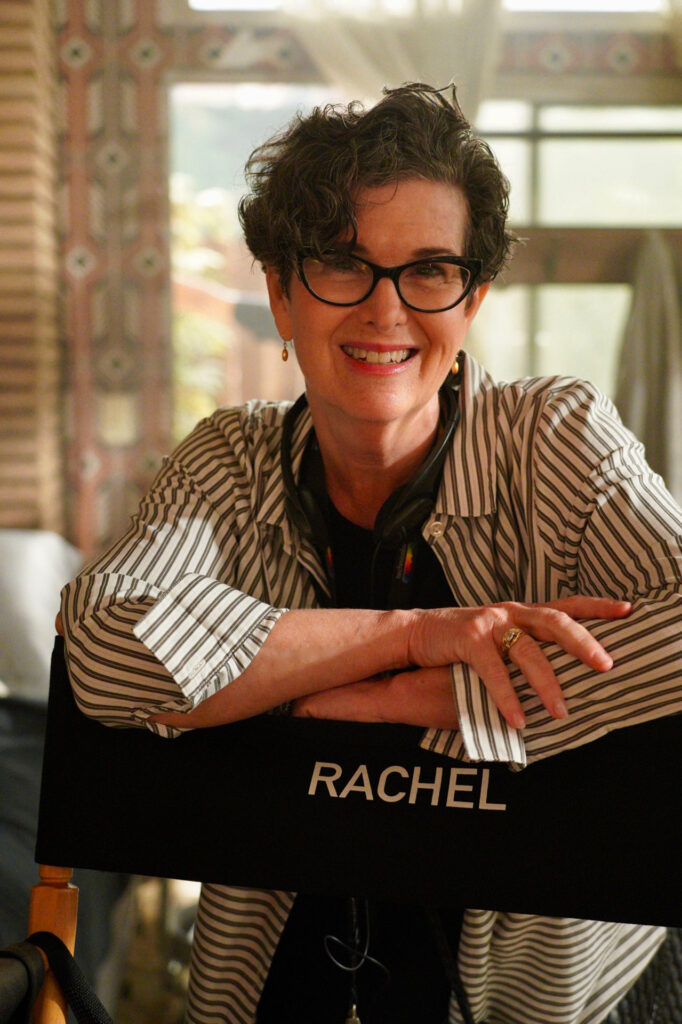
Rachel Feldman
Film Director/Screenwriter
Once upon a time. That’s how a story should begin. Once upon a time there was a beautiful little girl with a clever father and two big, strong brothers and a mother who adored her. And they all lived in a house in the big city and they were very happy.
In a story, you can make things go the way you want. And once upon a time there was indeed a beautiful little girl with a clever father and two brothers and a mother who lavished attention on her and they lived in New York city. The little girl’s name was Rachel, but the house was not happy. Her father was often away at work, and when he was home, he and her mother fought constantly. Her older brothers were lost in some competition with each other and paid no attention to her. And the love of her adoring mother came threaded with mental and emotional instability that made Rachel deeply watchful, enmeshed, and unsure.
But …. a good story can make all that bearable. And once upon a time this little girl mastered make-believe and learned to live in her imagination. “Storytelling is my superpower,” says Rachel Feldman, film director, “and it was also a way of surviving. My imagination is the thing that’s taken care of me, formed me, kept me sane, and created my professional life.”
First, though, it made her a child actor much in demand. Starting out modeling at age 3, Rachel gradually built a successful career doing ads and voiceovers. She had a knack for creating characters and the voices that went with them. In the Peanuts cartoons, she was the voice of Lucy, but she also appeared in hundreds of TV commercials for the likes of Jell-O Instant Pudding and Campbell’s soup. As she got older, she acted on TV shows during the 1960s like The Defenders and The Nurses. Both Rachel and her mother relished her work. “It was not like she was beating me over the head to be a child actor,” says Rachel. “I loved it. We had fun. We just became co-dependent.”

It was also movies that kept them together. Sometimes, Rachel’s mother would wake her up in the middle of the night to watch films with her: Stella Dallas. How Green Was My Valley. Pinky. The movies were important to Rachel’s mother emotionally, but they were unconsciously giving Rachel an education in cinema.
“My mother was a frustrated actress,” she says. “So, as an actor, I lived her dream for her. Except I didn’t want to be in front of the camera, wearing makeup and the itchy costumes.” The place to be, Rachel thought, was in the director’s chair.
She was a good enough student in high school to get into Sarah Lawrence College. There, she began to steep in literature and reading and discovered herself as a writer. From Sarah Lawrence, she went to NYU to get an MFA in filmmaking. She’d also met the man who would become her husband and father of her children.
But wait! We’re getting ahead of our story.
Living and studying in Greenwich Village with her boyfriend for five years was “wonderful,” says Rachel. She made lots of short films and her master’s thesis project won more than 50 national and international awards. She was, she thought, launched. And bravely Rachel moved to Hollywood, hoping (of course) to live happily ever after.
Except she didn’t. What followed were ten years of … nothing.
“I couldn’t get an agent,” says Rachel. “Despite having a master’s degree, award-winning films and years of apprenticeships and training as an actor, writer and director, I couldn’t get a manager. I couldn’t get a meeting. I couldn’t get anyone to read my scripts. I couldn’t get even my pinky toe in the door of Hollywood.”
One thing did go well: Rachel’s boyfriend followed her from New York to California, and they wed. But otherwise, Rachel was stuck.
There’s a thing in Hollywood called the “celluloid ceiling.” It refers to the overall underrepresentation and underemployment of women in filmmaking, and it has a long history. For decades, the top-grossing movies (with few exceptions) have been overwhelmingly written, produced, edited, directed, and filmed by men. At the same time, women who have finally found employment in film have had to deal with hostile work environments and harassment. In addition, Rachel discovered, Hollywood has a kind of loss aversion woven into its culture. It says: Have you had a hit yet? Call us when you’re a proven quantity and we can talk. Rachel wanted to scream. How do you become a proven quantity if no one will take a chance on you?
Change is gradually coming to Hollywood, but it’s a slow transformation. For Rachel starting out, “it was a different time. I felt so alone. There was no sisterhood, no women helping other women. In fact, some were afraid that, if they fought for other women, that would offend the men. And then their careers would suffer.”
Finally, Rachel got her break. She landed a job directing a syndicated television show. It was “low, low, low, low budget,” she says. And it wasn’t filmmaking. But it was a start. From there, she could join the Director’s Guild —“although I don’t think what I got paid on the job covered what it cost to join the union,” she says. Still, she was working. And getting good at what she did. And more jobs began to come her way. Producers Steven Bochco and David E. Kelley hired her to direct quality shows like Doogie Howser and Picket Fences. In between raising two children, Rachel amassed decades worth of television directing credits on shows such as Sisters, The Commish, Blue Bloods, The Rookie, and Criminal Minds. She joined the Women’s Steering Committee of the Director’s Guild and eventually became the committee chair. As she did, Rachel started raising her voice about inequalities that women in the film industry face.
And then one night in 2008 she was watching the Democratic National Convention with her husband. An Alabama grandmother named Lilly Ledbetter addressed the crowd. “I’m here to talk about America’s commitment to fairness and equality,” she said. “People like you and people like me suffer when that commitment is betrayed.”
Lilly had a story to tell: For nearly 20 years she’d been a plant manager for Goodyear Tire & Rubber company before discovering she’d been paid almost half of what her male counterparts earned doing the same job. Lilly sued Goodyear, and her case ended up going all the way to the Supreme Court where she ultimately lost on a technicality. But her fight was continuing; she spoke that night in 2008 about the importance of equal pay for equal work.
Rachel listened and grabbed her husband. “This is a movie!” she crowed. Lilly’s story was one Rachel knew in her bones: The closed doors. The bad pay for good work. The discrimination. The obstacles to climbing the ladder. The old boys’ network. Rachel called Lilly the next morning and began the journey to translate her story into a feature film.
The job of bringing “LILLY” to the big screen had almost as many ups and downs, disappointments and setbacks as Lilly’s actual legal battle. “I have a crazy dogged tenacity,” says Rachel, who co-wrote and produced “LILLY” as well as directing it. She needed grit. Finishing the film took fifteen years, including working through the Covid pandemic. “LILLY” premiered at the Hamptons International Film Festival in October 2024 and is now in distribution nationwide and available on all digital platforms. Lilly Ledbetter died two days after the world premiere of her story, but she got to see the movie.
“Lilly was so tough,” says Rachel. “She was just this southern grandma and factory worker who grew up with nothing. But she found the courage to stand up, to fight back. She changed lives, and her story reminds us that bravery doesn’t always come with a spotlight. It can come from quiet everyday people like you and me who refuse to accept injustice.”
“I believe in the power of one brave citizen,” says Rachel. “And I believe strongly that those of us who are privileged enough to be storytellers should use our voice to make an impact.”
She’s continuing to write. She’d like to make more movies. “I want to be in this for a long time,” says Rachel. “Movies have such power. And the world is changing so fast right now. I want to be someone who moves culture. I write a lot of genre, dark characters, science fiction, and psychological thrillers but somehow, they’re always a love story in disguise. Because I really do believe that love is the answer. Let’s put that out in the world.”
Maybe that is where another story begins…